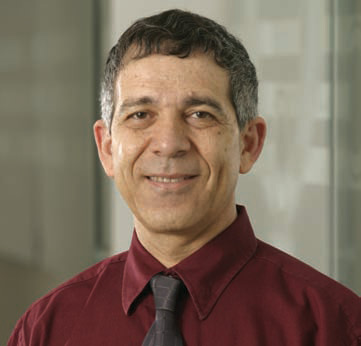Genetic Testing: Fact and Fiction

Dr. Mordechai Shohat
One of the major roles of genetic testing in today's modern world is to provide a simple and easy method of diagnosing genetic diseases in order to save lives, according to Prof. Mordechai Shohat, head of the Raphael Recanati Genetics Institute at Rabin Medical Center. Over the past 20 years, amazing new techniques have developed that enable scientists to learn about how genes work and how genes are linked to disease. Tests for gene mutations make it possible not only to detect diseases already clinically apparent, but also, in certain situations, to predict diseases yet to come. The department of genetic testing at the Raphael Recanati Genetics Institute at Rabin Medical Center is active in several areas:
Discovering diseases: Prof. Shohat believes that genetic testing to detect disease or the possibility of a disease should only be done when the information can save lives. With regard to breast and ovarian cancer, a woman who is found to carry a mutation in one of these specific genes has a 40% chance of developing ovarian cancer and an 80% chance of developing breast cancer. One in every 30 women carries this gene. Follow-up studies of women aged 45-50 for a period of 5 years found conclusively that those who had a mutation in one of these genes and had their ovaries removed survived, while 35% of those who went untreated died. It is, therefore, highly recommended that women with a family history of these cancers have the genetic test from the age of 35.
Prenatal diagnosis: To help determine if a fetus has any abnormalities that may be an indication of the presence of genetic diseases such as Down Syndrome, heart malformations and brain malformations, and to provide screenings for carriers of common genetic diseases such as Cystic Fibrosis and Tay-Sachs disease. Prof. Shohat: "We perform predictive genetic tests, which can detect the one out of every 120 couples where both the husband and wife are carriers of genetic diseases, and are therefore at high risk of having a child afflicted with a severe disease. We utilize a revolutionary computer program called the 'Genometer.' This program provides couples with a list of recommended tests based on family background and the couple's ethnic origins."
The Genetic Counseling Service at the Raphael Recanati Genetics Institute takes into account the parameters of each individual case, mapping out all the options in order to make a wise and educated decision for a better quality of life with less suffering and pain, as well as for saving lives.
Related Articles
Israeli Scientists Spice Up Chronic Pain Management
Ask people what they fear most about any medical procedure and they'll tell you it's not the operation itself but the pain that goes with it.
Revolutionary Technology for Cardiac Patients
For the first time in Israel, at the Catheterization Institute at Rabin Medical Center, a revolutionary heart catheterization procedure was performed using soluble stents.